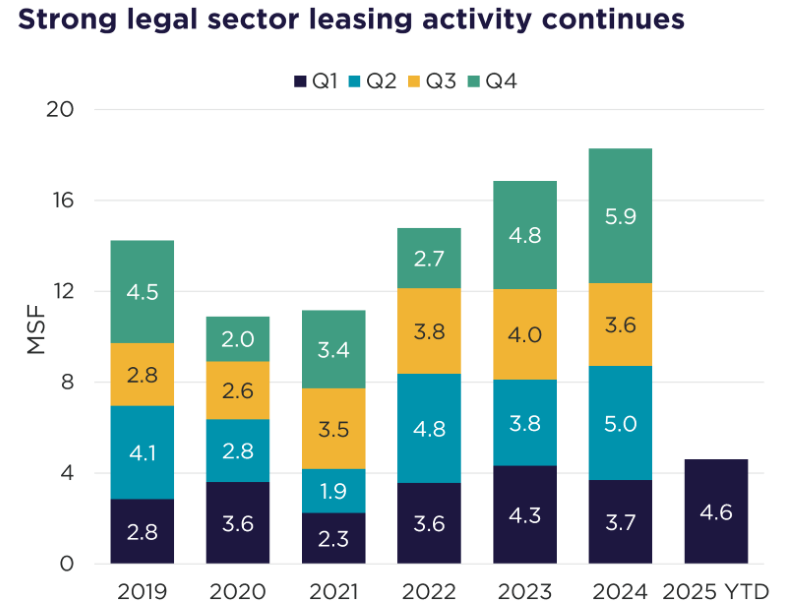Economy Watch: August Employment Numbers Not Great, Trouble Continues in Europe
The jobs report on the Friday before Labor Day included some miserable details. While the U.S. took a holiday on Monday, troublesome news didn't take a holiday in Europe. And U.S. economist Nouriel Roubini calls for a "60 percent" chance of another recession.
September 6, 2011
By Dees Stribling, Contributing Editor

The miserable jobs report on the Friday before Labor Day included some miserable details. The private sector did, in fact, create a modicum of jobs during August — some 17,000. But that was cancelled out by governments of various sorts shedding just that many workers as austerity takes hold. The Verizon strike affected the numbers somewhat as well, since the 45,000 workers on strike in August were counted as unemployed by the U.S. Bureau of Labor Statistics.
Unsurprisingly, a few industries continue to grow. Healthcare employment rose by 30,000 in August, with ambulatory healthcare services and hospitals adding 18,000 and 8,000 jobs, respectively. Over the past 12 months, healthcare employment has grown by 306,000.
Manufacturing employment, typically one of the linchpins of such recovery, was down by 3,000 in August following a gain of 36,000 in July. For the past four months, manufacturing has added an average of 14,000 jobs per month, compared with an average of 35,000 jobs per month in the first four months of the year.
More Trouble in Europe
While the U.S. took a holiday on Monday — a short respite from the pervasive melancholy — troublesome news didn’t take a holiday in Europe. For example, talks about the next round of bailout funds for Greece broke down over the fact that it’s clear that Greek debt is once more ballooning, despite the austerity structures put in place during earlier bailout rounds. Yields on one-year Greek notes, at least those few that trade, are now north of 70 percent, and two-year yields are about 50 percent.
Will Greece ditch the euro? Easier said that done, according to a new report by USB that posits the obvious notion that “under the current structure and with the current membership, the euro does not work.” But, the report adds, “the cost of a weak country (e.g., Greece) leaving the euro is significant. Consequences include sovereign default, collapse of the banking system and collapse of international trade. There is little prospect of devaluation offering much assistance.”
Meanwhile, across the Adriatic, the yield on Italian bonds has edged up to 5.2 percent in recent days due to nervousness about the country’s large debt (1.9 trillion euros, or $2.7 trillion) and a growing feeling that Prime Minister Silvio Berlusconi is behaving like an incompetent playboy (as opposed to merely a playboy).
Roubini Says Recession Likely
Speaking at the Ambrosetti Forum in Lake Como, Italy, on Friday, Dr. Doom — that is, U.S. economist Nouriel Roubini — called for more stimulus and less austerity from the governments of the developed world. “We are in a worse situation than we were in 2008,” he said. “This time around we have fiscal austerity and banks that are being cautious.”
Could be he’s right in thinking there’s a “60 percent” change of a second world recession in the immediate future. On the other hand, in some ways Roubini’s stuck being Dr. Doom. If Dr. Doom were uncharacteristically optimistic and turned out to be right (no recession), few would remember. If he were optimistic and turned out to be wrong (a recession happens), he would be mocked for it.
Moreover, if he predicted a recession and it didn’t happen, few would fault him for it, since he’s Dr. Doom, after all. Predicting recessions is his game. Finally, if Dr. Doom warns that another recession was nigh, as he seems to be doing, and he turned out to right, then his reputation as an economist of profound insight would be all the more confirmed. There seems to be a built-in incentive for Dr. Doom to warn of, well, doom.
The markets were closed on Monday for the holiday, but Wall Street didn’t take the news of the jobs report well on Friday. The Dow Jones Industrial Average lost 253.31 points, of 2.2 percent, while the S&P 500 and the Nasdaq were down 2.53 percent and 2.58 percent, respectively. The outlook for when the markets reopen on Tuesday is none too good.







You must be logged in to post a comment.